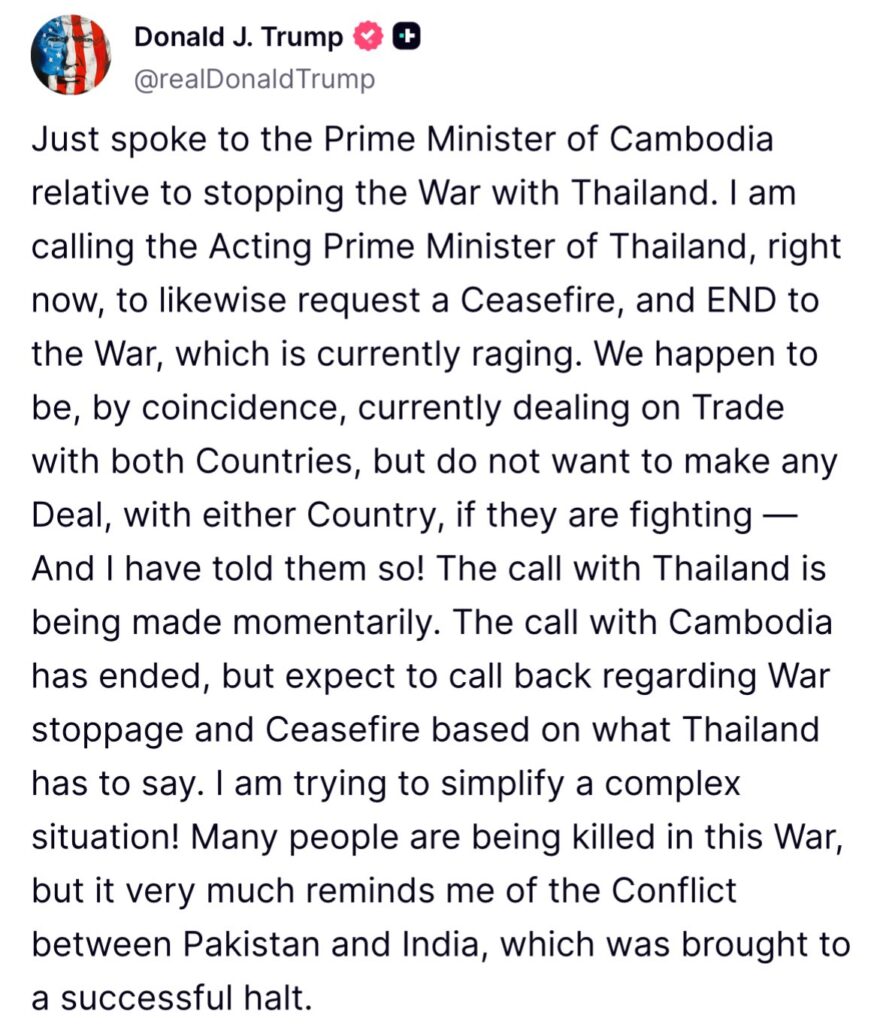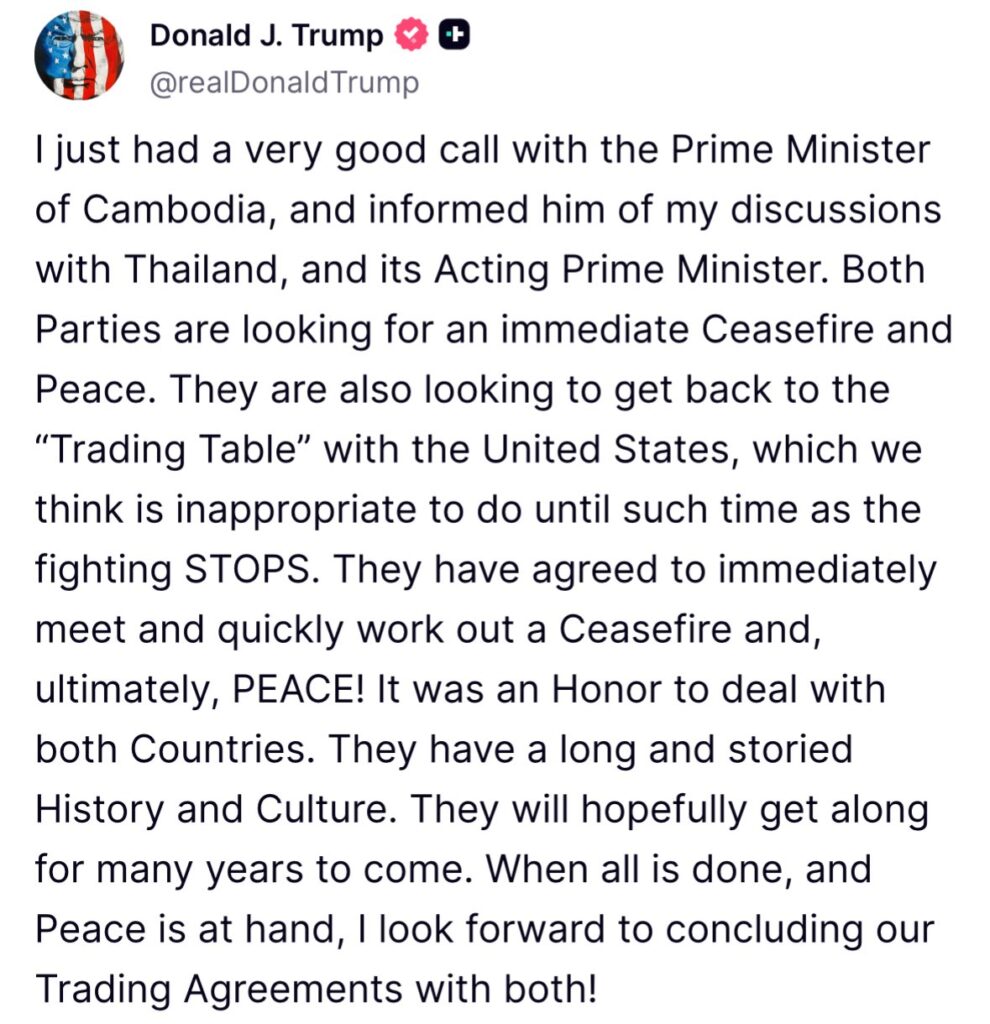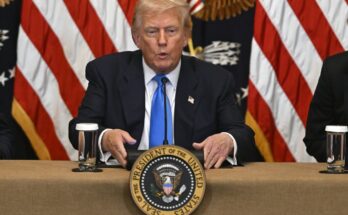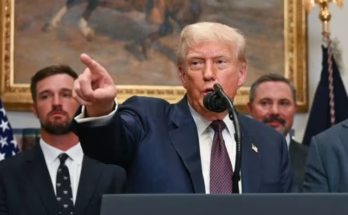Amid escalating violence along the Thailand-Cambodia border, former U.S. President Donald Trump has stepped into the diplomatic fray, claiming both nations support an immediate ceasefire. The conflict, which erupted after a Cambodian soldier was killed in May, has intensified over the past three days, resulting in over 33 deaths and displacing more than 130,000 civilians.
Trump, currently in Scotland, announced via Truth Social that he had spoken with Cambodian Prime Minister Hun Manet and Thailand’s Acting Prime Minister Phumtham Wechayachai. He emphasized that both leaders expressed a desire for peace and agreed to meet immediately to negotiate a ceasefire. Trump warned that U.S. trade deals with either country would be suspended if hostilities continued, leveraging economic pressure as a tool for de-escalation.
The fighting spans multiple provinces, including Trat in Thailand and Pursat in Cambodia, with reports of artillery fire, land mines, and accusations of cluster munitions use—though both governments deny deploying banned weapons. The disputed 500-mile border has long been a flashpoint, particularly around ancient temple sites like Preah Vihear, which Cambodia claims under a 1962 International Court of Justice ruling.
International bodies, including the UN Security Council and ASEAN, have urged restraint and called for mediation. Malaysian Prime Minister Anwar Ibrahim, chair of ASEAN, is actively promoting a ceasefire plan, which Cambodia supports and Thailand tentatively agrees with.

Trump likened the situation to the India-Pakistan conflict, stating he was “trying to simplify a complex situation.” He expressed optimism that peace talks would lead to renewed prosperity and trade, though no formal details of the negotiations have been released.



